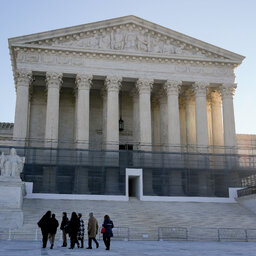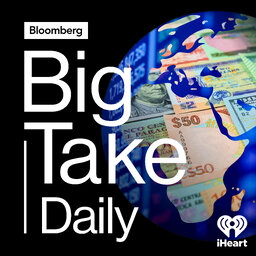Goodbye Sicily, Hello Sarasota. The Post-Pandemic Travel Boom Is Over
That White Lotus-inspired trip to Sicily. The Instagram-perfect Joshua Tree glamping holiday. A party weekend in Miami. Ever since the first lockdown restrictions were lifted in 2021, Americans have been spending big on travel. But a recent slew of weak earnings from companies like Delta and Expedia suggest that the post-pandemic travel boom is finally over.
In today’s episode, Bloomberg tech reporter Natalie Lung tells host Sarah Holder that from airlines to Airbnb, companies are reporting weaker-than-expected demand for summer travel. So does that mean now is the perfect time to book a last-minute vacation? Depends on where you’re game to go.
Read more: Flights, Hotels and Parks Are All Flashing Travel Warning Signs
In 1 playlist(s)
Big Take
The Big Take from Bloomberg News brings you inside what’s shaping the world's economies with the sma…Social links
Follow podcast
Recent clips

SCOTUS Strikes Down Trump’s Tariffs
18:55

The Sixth Bureau Episode 3: Suck, Squeeze, Burn, Blow
21:28

Trump’s Plan to Dismantle the Department of Education
19:04
 Big Take
Big Take